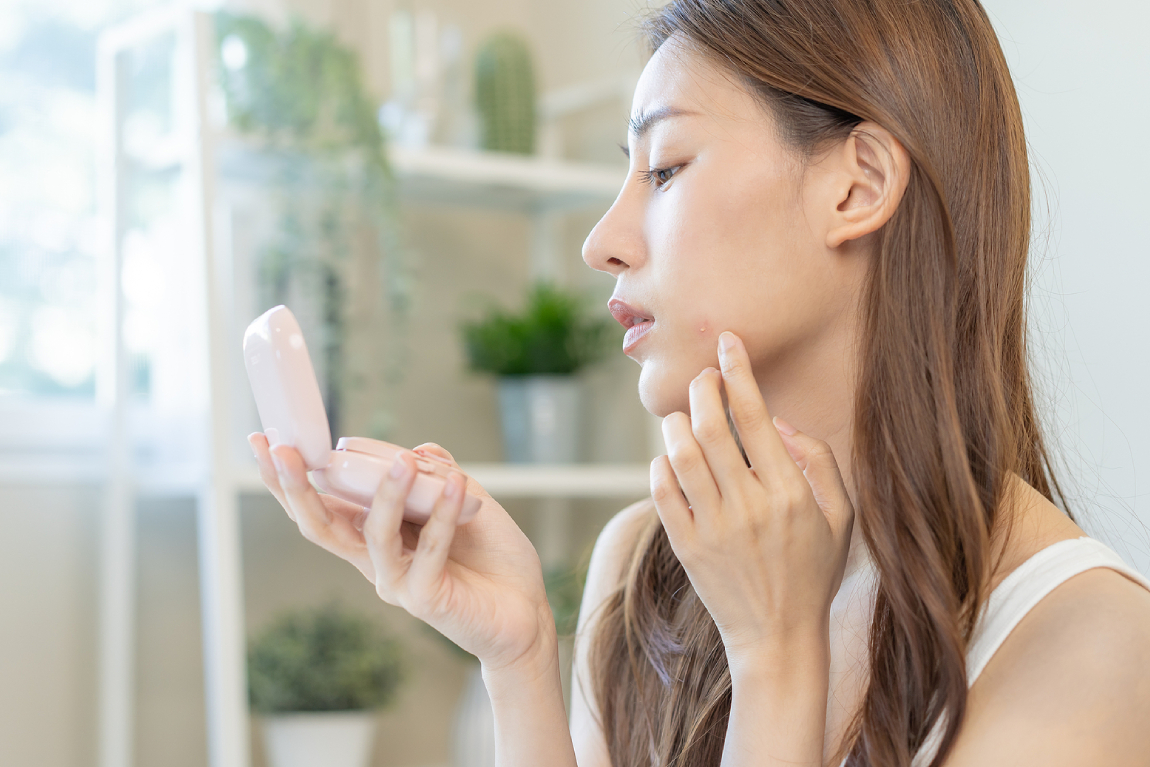
Acne is that stubborn, unwanted guest who shows up uninvited—and just refuses to leave. No matter how many products you try or how carefully you follow your routine, those breakouts keep coming back, leaving you feeling frustrated and stuck. But here’s the thing: sometimes, it’s not just about what you put on your skin. It’s the sneaky little daily habits—things you probably don’t even realise you’re doing—that are quietly making your acne worse.
Breaking free from this cycle starts with uncovering these hidden habits. Once you spot them, you can take real control over your skin’s health and start seeing the clearer, calmer complexion you deserve. Ready to find out what might be holding your skin back? Here are seven everyday habits that could be secretly fuelling your acne flare-ups—and how to change them for good.
Professional care can be a game-changer for acne-prone skin. An acne facial treatment goes beyond your daily routine by deeply cleansing clogged pores, calming inflammation, and targeting bacteria that cause breakouts. Neglecting these treatments can allow oil and dirt to build up, making it harder to control acne.
These specialised facials include gentle extractions, chemical exfoliants, and soothing masks designed to reduce redness and support skin healing. Regular treatments can speed up recovery and prevent future breakouts, keeping your skin balanced and clear.
It might seem logical that washing your face more often would help, but overwashing can strip your skin of its natural oils, causing it to overcompensate by producing even more oil. This excess oil can clog pores and worsen acne.
On the flip side, not washing your face enough allows dirt, sweat, and oil to accumulate, feeding bacteria that trigger pimples. The key is to cleanse gently but thoroughly twice a day with a cleanser designed for acne-prone skin.
Our hands are magnets for bacteria, oils, and dirt. Touching your face frequently transfers these impurities to your skin, clogging pores and causing irritation. Popping or picking at pimples also introduces bacteria deeper into the skin, leading to inflammation and potential scarring.
Train yourself to avoid touching your face and keep your hands clean. When breakouts happen, use spot treatments or seek professional acne facial treatment rather than squeezing.
Not all skincare or makeup products suit acne-prone skin. Products that are too thick, greasy, or comedogenic can clog pores and worsen breakouts. Look for oil-free, non-comedogenic formulations labelled safe for acne-prone skin.
Additionally, layering too many products or changing your routine too frequently can irritate the skin and trigger acne. Simplicity and consistency are often best.
Though diet isn’t the sole cause of acne, research has explored the link between acne and dairy, as well as the impact of foods high in refined sugars and processed items, which can exacerbate inflammation for some people. Drinking plenty of water supports your skin’s natural detoxification and repair processes.
Eating a balanced diet rich in antioxidants, vitamins, and minerals—from fruits, vegetables, and whole grains—nourishes your skin from within.
Pillowcases and towels can harbour oils, dead skin cells, bacteria, and makeup residue. Sleeping or wiping your face with unclean fabrics transfers these impurities back onto your skin, aggravating acne.
Make it a habit to change pillowcases twice a week and wash towels frequently to keep your skin environment clean.
Stress triggers the release of hormones like cortisol, which can increase oil production and inflammation, worsening acne. Lack of sleep also impairs your skin’s ability to repair itself, leading to dullness and breakouts.
Managing stress through meditation, exercise, or hobbies and getting 7–9 hours of restful sleep each night can improve both your skin and overall well-being.
Alongside changing these habits, professional acne facial treatment can dramatically improve your skin. These treatments deeply cleanse pores, gently exfoliate dead skin, reduce inflammation, and promote healing—all tailored specifically for acne-prone skin.
With regular sessions, you’ll notice fewer breakouts, less redness, and a smoother complexion.
Clearer skin isn’t about perfection—it’s about understanding your habits and how they impact your skin’s health. By adjusting these seven everyday habits and incorporating professional acne facial treatments, you’re giving your skin the best chance to heal and thrive.
If you’re ready to stop the cycle of breakouts and achieve lasting results, discover the range of expert facial treatments at Adonis Skincare. Our skilled professionals customise every session to your unique skin needs, combining deep cleansing, targeted extractions, and soothing care to restore your skin’s natural balance.
At Adonis Skincare, you’ll receive personalised attention, cutting-edge techniques, and premium products designed to fight acne and promote radiant, healthy skin. Don’t let acne control your confidence—take the first step toward clearer skin today with Adonis Skincare’s transformative facial treatments. Your skin deserves expert care and a fresh start!
There may be times when you’ve caught yourself staring into the mirror, trying to figure out what those tiny bumps on your face are. Acne, also known as…
Want brighter, glowing skin? One product you should never skimp on is sunscreen! Here are four effective ways to achieve brighter, glowing skin by using skincare products in…